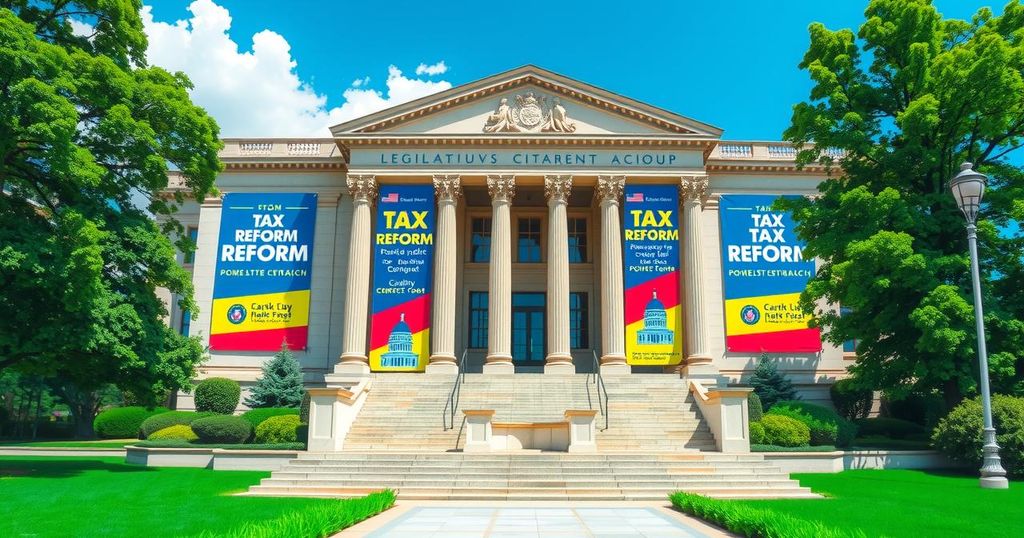Nigerian lawmakers approved President Tinubu’s tax reform bills after months of debate. The bills faced criticism, notably from the Northern Nigeria Governors’ Forum and the National Economic Council. President Tinubu initially proposed the reforms in October 2024, aiming to revamp the taxation system in Nigeria.
On March 13, 2025, the Nigerian House of Representatives approved the tax reform bills proposed by President Bola Ahmed Tinubu, following months of heated debates. This confirmation was made public by Sunday Dare, the presidential spokesperson, who noted that the bills had finally passed without elaborating on specifics regarding the legislation.
The approval comes amidst considerable contention, particularly from the Northern Nigeria Governors’ Forum, which expressed opposition to the tax derivation model outlined in the Nigeria Tax Bill. Additionally, the National Economic Council raised concerns regarding this model, signaling a significant divide in opinions.
The process began when President Tinubu submitted four tax reform bills to the National Assembly on October 3, 2024, which included the Nigeria Tax Bill 2024, the Tax Administration Bill, the Nigeria Revenue Service Establishment Bill, and the Joint Revenue Board Establishment Bill. These reforms are central to altering Nigeria’s taxation framework aimed at enhancing efficiency and revenue generation.
In summary, the passing of President Tinubu’s tax reform bills marks a pivotal moment in Nigerian economic policy amidst previous resistance. Despite pushback from various factions, the approval reflects a significant step toward modernizing Nigeria’s tax system, a process that commenced with the submission of the reform proposals in late 2024.
Original Source: dailypost.ng




